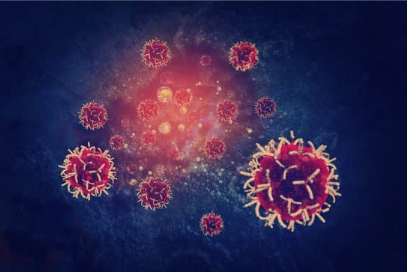HPV Vaccinations May Decrease HPV-Related Cancers in Those Under 40
Rates of HPV-related cancers may be decreased in patients under 40 have received an HPV vaccine.
Rates of HPV-related cancers may be decreased in patients under 40 have received an HPV vaccine.

Lower rates of human papillomavirus (HPV)-related cancer such as oropharyngeal and ovarian were observed in patients under 40 who received a HPV vaccine.
Findings presented at a press briefing ahead of the 2024 American Society of Clinical Oncology Annual Meeting showed that vaccinated female patients experienced statistically significant lower rates of all HPV-related cancers (odds ratio [OR], 0.73; 95% CI, 0.57-0.94; P < .05) and cervical cancer (OR, 0.46; 95% CI, 0.29-0.72; P < .05) compared with unvaccinated patients. Differences in the rates of vulvar/vaginal cancers (OR, 1.7; 95% CI, 0.81-3.4) and head and neck cancers (OR, 0.67; 95% CI, 0.42-1.08) did not reach statistical significance. Notably, data for anal cancer were not sufficient for analysis.
In male patients, statistically significant lower rates of all HPV-related cancers (OR, 0.46; 95% CI, 0.29-0.72; P < .001) and head and neck cancers (OR, 0.44; 95% CI, 0.26-0.73; P < .001) were observed for vaccinated patients vs unvaccinated patients. Data were not sufficient to analyze the rates of penile and anal cancers.
“Our study showed that patients under the age of 40 [who] were vaccinated for HPV could have lower rates of cancer that are typically caused by HPV, including oropharyngeal cancer and cervical cancer,” Jefferson DeKloe, BS, a medical student at Western Michigan University in Kalamazoo and a research fellow at Thomas Jefferson University in Philadelphia, Pennsylvania, said during the press briefing.
HPV is known to cause cancers in the oropharynx and cervix, as well as in anal and genital regions. HPV vaccines have demonstrated the ability to prevent this infection, and they are recommended for males and females between 9 and 26 years of age. Additionally, patients between 27 and 45 years of age can also receive this vaccine. However, the rates of HPV vaccination in the United States (US) are lower compared with the rates of vaccination for other communicable diseases.
To further study the rates of HPV-related cancers in vaccinated and unvaccinated individuals, DeKloe and colleagues conducted a retrospective analysis using data from the TriNetX Database’s US Collaborative Network, which comprised information from deidentified electronic health records for 90 million patients at 63 US health care organizations. The study included patients between 9 and 39 years of age.
Patients were divided into 2 cohorts. The first included patients who received an HPV vaccine between 2010 and 2023, and the second consisted of patients who received any other vaccine in the same period but were not administered an HPV vaccine. ICD-10 codes were used to determine the proportion of patients in each cohort who were diagnosed with head and neck cancer (C0-C14); cervical cancer (C53); anal cancer (C21); penile cancer (C60); and vulvar/vaginal cancer (C51-C52).
The cohort of patients who received HPV vaccines included 760,540 males and 945,999 females. The other vaccination cohort comprised 760,539 males and 945,943 females. Patients in the 2 cohorts were matched for age, race/ethnicity, and body mass index (BMI), and investigators examined cancer outcomes at least 5 years following vaccination.
Investigators also analyzed the correlation between vaccination history and cervical dysplasia. They identified female patients between 21 and 39 years of age who underwent pap testing, excluding patients with a prior history of abnormal findings on a pap smear. Both the HPV-vaccinated and the HPV-unvaccinated cohort included 41,676 patients. After matching for age, race/ethnicity, and BMI, investigators examined the rates of dysplasia, carcinoma in-situ (CIS), loop electrosurgical excision procedure (LEEP), and conization.
Findings showed that a statistically significant difference was not observed between HPV-vaccinated and -unvaccinated patients regarding atypical squamous cells of undetermined significance (OR, 0.90; 95% CI, 0.77-1.04) and low-grade squamous intraepithelial lesions (OR, 0.87; 95% CI, 0.75-1.01). However, statistically significant lower rates of high-grade squamous intraepithelial lesions (OR, 0.44; 95% CI, 0.30-0.65; P < .0001), CIS (OR, 0.42; 95% CI, 0.25-0.72; P < .0001), abnormal pap findings (OR, 0.87; 95% CI, 0.79-0.95; P < .01), and conization/LEEP (OR, 0.45; 95% CI, 0.28-0.71; P < .0001) were observed for HPV-vaccinated patients vs unvaccinated patients.
Reference
DeKloe J, Urdang ZD, Martinez Outschoorn UE, Curry JM. Effects of HPV vaccination on the development of HPV-related cancers: a retrospective analysis of a United States-based cohort. J Clin Oncol. 2024;42(suppl 16)10507. doi:10.1200/JCO.2024.42.16_suppl.10507
How Supportive Care Methods Can Improve Oncology Outcomes
Experts discussed supportive care and why it should be integrated into standard oncology care.
How Supportive Care Methods Can Improve Oncology Outcomes
Experts discussed supportive care and why it should be integrated into standard oncology care.
2 Commerce Drive
Cranbury, NJ 08512
All rights reserved.